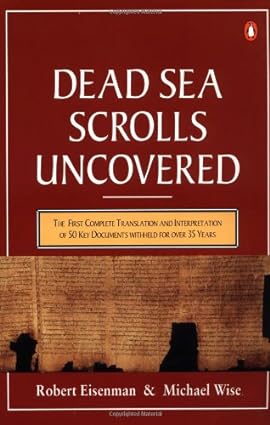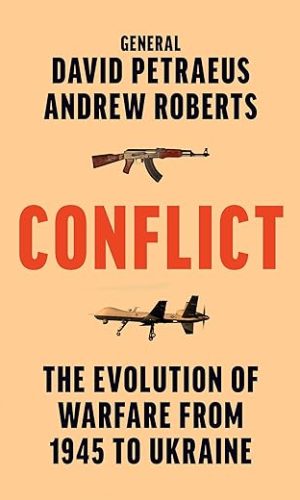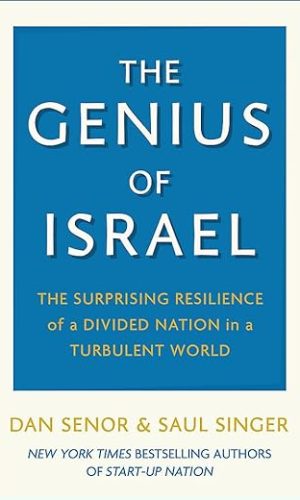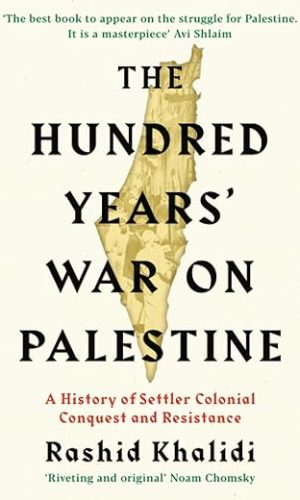Enemies and Neighbours: Arabs and Jews in Palestine and Israel, 1917-2017
£13.30£16.10 (-17%)
ECONOMIST, SUNDAY TIMES, FINANCIAL TIMES AND GUARDIAN BOOKS OF THE YEAR 2017
‘Comprehensive and compelling … A nuanced, landmark study that has deservedly won plaudits from both Palestinian and Israeli historians’ Justin Marozzi, The Times
A century after Britain’s Balfour Declaration promised a Jewish ‘national home’ in Palestine, veteran Guardian journalist Ian Black has produced a major new history of one of the most polarising conflicts of the modern age.
Drawing on a wide range of sources – from declassified documents to oral testimonies and his own decades of reporting – Enemies and Neighbours brings much-needed perspective and balance to the long and unresolved struggle between Arabs and Jews in the Holy Land.
Beginning in the final years of Ottoman ruleand the British Mandate period, when Zionist immigration transformed Palestine in the face of mounting Arab opposition, the book re-examines the origins of what was a doomed relationship from the start. It sheds fresh light on critical events such as the Arab rebellion of the 1930s; Israel’s independence and the Palestinian catastrophe (Nakba in Arabic) of 1948; the watershed of the 1967 war; two Intifadas; the Oslo Accords and Israel’s shift to the right. It traces how – after five decades of occupation, ever-expanding Jewish settlements and the construction of the West Bank ‘separation wall’ – hopes for a two-state solution have all but disappeared, and explores what the future might hold.
Yet Black also goes beyond the most newsworthy events – wars, violence and peace initiatives – to capture thereality of everyday life on the ground in Jerusalem and Hebron, Tel Aviv,Ramallah, Haifa and Gaza, for both sides of an unequal struggle. Lucid, timelyand gripping, Enemies and Neighbours illuminates a bitter conflict that shows no sign of ending – which is why it is so essential that we understand it.
Read more
Additional information
| Publisher | Penguin, 1st edition (25 Oct. 2018) |
|---|---|
| Language | English |
| Paperback | 640 pages |
| ISBN-10 | 0141979143 |
| ISBN-13 | 978-0141979144 |
| Dimensions | 12.9 x 2.8 x 19.8 cm |









by Robert ‘Bob’ Macespera
This is perhaps one of the best one-volume books one can find in the market as at now in relation with the perennial conflict of the Middle East. The author goes way back to the remote antecedents, handles well the foreign influences and gets to the present days with very good explanations of the current state of things. And this using well and effortlessly the array of publications and books availabe.
Mr Black uses well the principle that “two do not fight if one of those two does not want to”, but he does not patronize – one way or the other.
In conclusion, a very good book which can serve either as an introduction or as a deeper study for those with a basic education of the matter.
by Shak224
A well presented book describing as objectively as possible the tragic history of Palestine over the past 100 years. A true story of deceit, bigotry and inhumanity perpetrated by the so called ‘good and the great’ colonial powers and the impact on ordinary people whose lives were destroyed as their homes were suddenly vanished and the people displaced. and the World watched helpless as the tragedy unfolded. A highly recommended book that will leave you thinking about history repeating itself and the impact of ill considered decisions 100 years ago still reverberate in the 21st Century and will continue to do so sadly for a long time to come.
by Tsila
I have just finished reading this book and here are some of my thoughts at this time.
The book is expansive in historical scope, covering the 100 year period from 1917 to 2017. As such it gives you an excellent overview of how and where it all began and why we might be where we are today. It is very detailed, full of names and places, so I found it best not to try to focus deeply on every detail, instead to push on and try to gain an overall picture.
I have found it very worthwhile reading this book and much of what is described I do recall hearing of via the news over the many decades that have passed ( I was 10 at the time of the ’67 war). To re-visit these events by reading about them in detail is a sobering and thought-provoking experience and often upsetting as I read about the lives lost on both sides. But I feel it has been essential, especially at this time as we face the Trump plan and what might develop from it.
When I had finished reading it, I put the book down realising I would not feel the same way again towards the state of Israel. It has been a wake-up call of sorts for me. I have always felt an affection for the Hebrew language and Judaism and have been learning to speak Hebrew for many years. I have also enjoyed reading the books of Martin Buber who wrote, amongst other things, a great deal about zionism and the Jewish connection to Israel. He was however an advocate of a much ‘softer’ zionism regarding Jews moving to live in Israel alongside the Arabs there, constantly raising the need for co-operation with the Arabs in those earlier pre-Israel days and raising concerns about the numbers of Jews moving there. Could this ever have worked, even had the will been there amongst earlier Jewish settlers? I don’t know, and perhaps now I reflect that any settlement there, however cautious, might have been wrong.
As my reading of the book progressed, I came to feel that once the foothold was there and the bullish manner of the settlement project established the Arabs were destined to lose their land. I found this depressing, especially regarding the illegal ongoing west bank settlements that have never abated up to this day. It seems to me that the best that there could have been for the Arabs was the UN partition plan of 1947.
I am not widely read on this subject and so am not in a robust position to comment upon whether or not the book is overly biased toward favouring the Palestinian cause; my sense at this time is that it is slightly so, though I feel it is difficult not to be when the whole story is faced. Before reading this book I had read Martin Buber’s book ‘A land of two peoples’ and Bernard Lewis’s book ‘Semites and anti-semites’. I read these to under-pin a little my reading of Ian Black’s book, as I wanted to understand more of Buber’s approach and also anti-semitism (which I find abhorrent and have never understood). At the end of the day, after reading Ian Black’s book, I have found myself unable to reconcile the state of Israel as it exists today with the understandable desire for a safe Jewish homeland.
by Blah de Blah de Blah
Personal disclaimer: I am not Jewish, nor Muslim, nor Christian, nor any religion; neither politically motivated, right nor left. I am though a leading member of a charity that specialises in forgiveness work in some of the world’s hotspots; that includes Israel/Palestine, and that region has been my own area of focus. I spend 2 to 3 months per year in that country which I will refer to as Israel, being the accepted UN denomination.
Ian Black’s book is a detailed exposé of the 100 years from the Balfour Declaration of 1917 till now. It lays out in considerable detail, virtually year by year, sorry events that have happened in Israel – mostly but not always, the Jews as conquerors and the Arabs as victims. And that is mostly the history of the past 100 years – but you cannot hope to understand this terrible situation without understanding the history of both sides that got us to this point.
After reading this book I came away with a distinct impression that it is a biased report. There are dozens of examples to illustrate this throughout the book, but I will take just two:
The first is his description of the Six-Day War in 1967, he states (p.180):
“The Israelis performed a remarkable feat of arms. By striking pre-emptively – impatient generals urging and finally persuading a notoriously hesitant prime minister Levi Eshkol to act – they won the war within the first few hours of 5 June with the destruction of most of the Egyptian air force while it was still on the ground”.
This creates the impression of war-mongering generals bullying a politician into agreeing to a war. He does not explain what a pre-emptive strike is, nor give any mention to the work of the Israeli master spy (a Druze Arab), who acquired information that the Egyptians were going to attack Israel on 6 June, so the IDF wiped out the assembled attack aircraft on the ground preventing the air attack on Israel. He mentions earlier the Cairo accord of 1964 where all neighbouring Arab countries vowed to destroy Israel – only three years later the IDF had absolutely no choice for the preservation of their country, they knew full well the threat they were facing.
A second example is his description of the last IDF invasion of Gaza in the summer of 2014 (I was there at the time). On p.452 he states:
“Automated phone calls, texts and leaflets dropped from planes [on Gaza] announced impending attacks [by the IDF], but in many cases investigated by Amnesty International no prior warning was given”.
Black does not though balance his report with Amnesty International’s statement about the actions of Hamas, so in the interest of balance here it is:
“Hamas forces carried out a brutal campaign of abductions, torture and unlawful killings against Palestinians accused of ‘collaborating’ with Israel and others during Israel’s military offensive against Gaza in July and August 2014…..It is absolutely appalling that, while Israeli forces were inflicting massive death and destruction upon the people in Gaza, Hamas forces took the opportunity to ruthlessly settle scores, carrying out a series of unlawful killings and other grave abuses”.
Black mentions dozens and dozens of quotes from Palestinians throughout the book of how it feels to be under the Israelis. There is not one quote from a Jew on how it feels to have a loved one killed by a suicide bomber. Jews who have committed crimes against Palestinians are tried and sentenced accordingly in Israeli courts, but any Palestinian terrorist who kills Jews is lauded as a hero or martyr. This imbalance needs to be addressed.
The Israel/Palestinian situation is expertly summed up by George Mitchell (he of Good Friday Agreement fame), quoted on p.380:
“Despite their long history and close proximity, some Israelis and Palestinians seem not to fully appreciate each other’s problems and concerns. Some Israelis appear not to comprehend the humiliation and frustrations that Palestinians must endure every day as a result what living with the continuing effects of occupation, sustained by the presence of Israeli military forces and settlements in their midst, or the determination of the Palestinians to achieve independence and genuine self-determination. Some Palestinians appear not to comprehend the extent to which terrorism creates fear among the Israeli people and undermines their belief in the possibility of co-existence, or the determination of the [Israeli] government to do whatever is necessary to protect its people”.
It is my fervent wish that this seemingly endless dispute is brought to an end and that there is peace in the region. I long for Jews accepting Arabs as equals, and I long for Arabs accepting Israel as a legal nation state – we have neither at this time. I do not believe this book helps the situation. I cannot give more than two stars as a result.